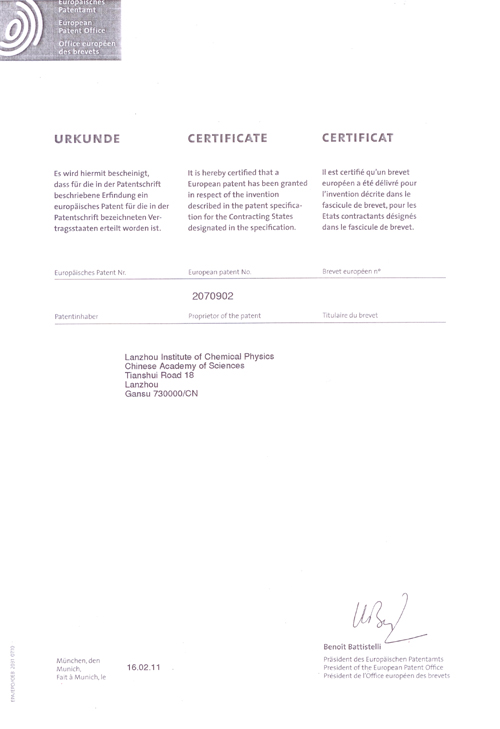Researchers of State Key Laboratory for Oxo Synthesis and Selective Oxidation of Lanzhou Institute of Chemical Physics, Chinese Academy of Sciences (LICP, CAS) have received one German invention patent for their preparation technique of 1,2 propylene glycol from the hydrogenation of glycerol. They have already received one American invention patent and one Chinese invention patent for the technology and own the independent intellectual property right.
1,2-Propylene glycol is an important chemical and raw materials for producing unsaturated polyesters, epoxy and polyurethane resin. It is widely used in coatings, food, medicine, cosmetics, washing products, plasticizers, anti-freezes, reinforced plastics etc. Industrially, it is produced by hydrating of propylene oxide. The technology relies heavily on petrochemical based propylene resources. Moreover the process is complicated and the cost is high.
Using new catalytic materials and technique, LICP researchers have realized the production of 1,2 propylene glycol from the hydrogenation of glycerol, which is a non-fossil-based method. Compared with the fossil-based route, the technology is environmental-friendly with low cost and short processing time.
With the fast development of bio-diesel industry worldwide, the issue of glycerin (the byproduct of bio-diesel) surplus has become increasingly serious. The technology has provided enough raw materials for the high value utilization of bio-diesel and greatly raised the economic benefits of bio-diesel. It is of great economic, social and environmental significance.
The patent is No. 2070902.

Patent Certificate


